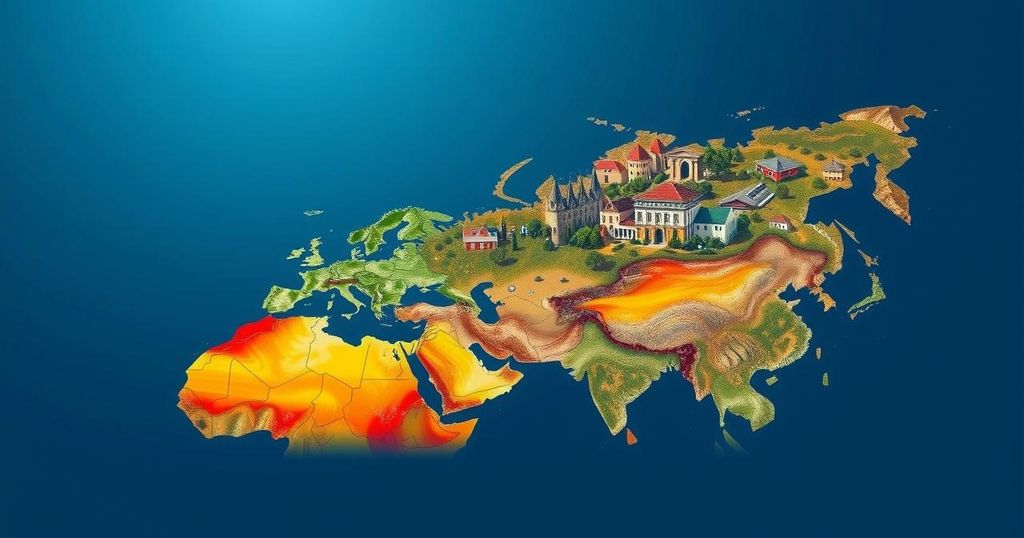Kazakhstan is faced with significant challenges posed by global warming, which threatens key sectors such as agriculture, mining, and water resources. A report from the NBER underscores the need for strategic adaptations through green technologies and sustainable practices. These measures will not only protect the economy but also position Kazakhstan as a regional leader in sustainability efforts.
Kazakhstan aims to address the impacts of global warming through green technologies and sustainable agricultural practices, potentially positioning itself as a regional leader in sustainability. A report from the National Bureau of Economic Research (NBER) examines the economic implications of temperature fluctuations, particularly highlighting the vulnerabilities of countries like Kazakhstan, which experiences diverse climatic conditions. These temperature changes can adversely affect key sectors such as agriculture, mining, and water resources, necessitating significant adaptations. The NBER report describes the adverse effects of global warming, stating that increased temperatures could negatively impact agricultural yields in Kazakhstan, especially due to reduced rainfall in central and southern regions. This leads to heightened irrigation demands and increased costs, imperiling the sector’s viability, which is essential given its contribution to the national economy. Moreover, the mining and energy sectors face rising operational costs as equipment may require additional cooling due to extreme heat. Furthermore, the country faces challenges regarding water accessibility, as climate change exacerbates drought conditions and affects water supply reliability. Increased temperatures may lead to long-term economic consequences, including decreased labor productivity and increased infrastructural maintenance costs. Therefore, the report emphasizes that adapting to these climate challenges is crucial for Kazakhstan’s economic resilience.
Kazakhstan is experiencing mounting threats from global warming, significantly impacting its economy and environment. With its mix of temperate and semi-desert zones, the nation is already vulnerable to extreme weather conditions. The recent report by the NBER sheds light on how temperature changes directly affect various economic sectors, emphasizing that actionable strategies are necessary to enhance resilience. Kazakhstan’s reliance on natural resources heightens its exposure to climatic fluctuations, making it imperative to incorporate sustainable practices and green technologies.
In conclusion, Kazakhstan must adopt a proactive approach to mitigate the adverse effects of global warming through strategic investments in green technology, innovative agricultural practices, and improved water resource management. The NBER’s findings highlight that by embracing sustainability, Kazakhstan can protect its economy and food security while striving to become a leading example of environmental resilience in the region.
Original Source: astanatimes.com






